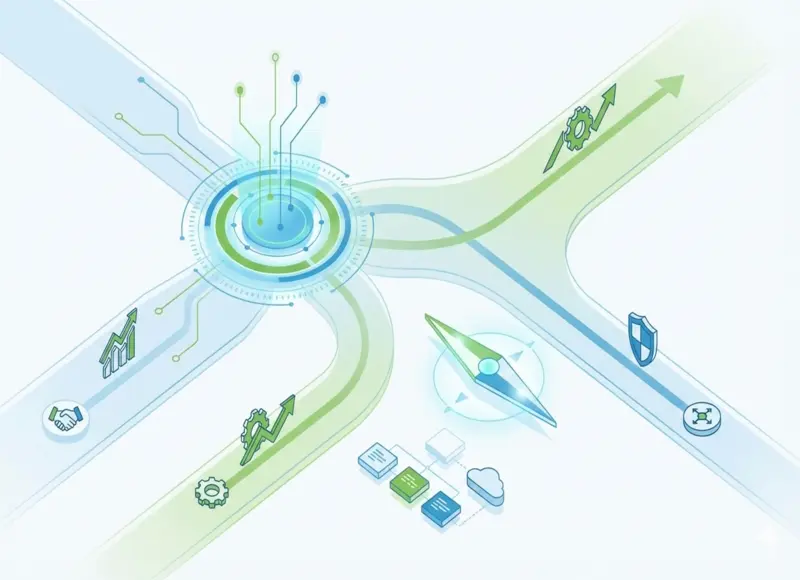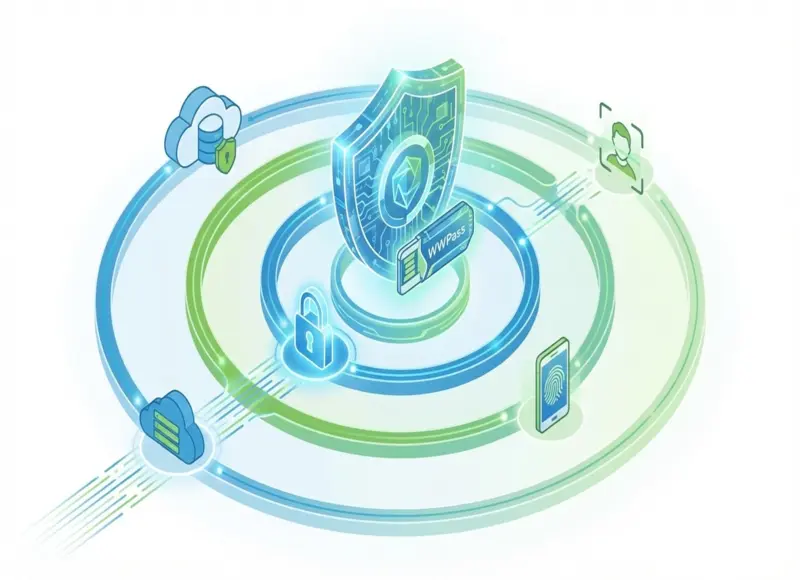Table of Contents
Ensure your software remains secure, efficient, and up-to-date by partnering with a reliable support and maintenance team that proactively fixes issues, implements updates, monitors performance, and keeps your product competitive and protected.

With software becoming central to everything we do, it’s no longer a one-time investment. Once a product is launched, it requires ongoing care—fixing bugs, patching security vulnerabilities, and adding new features to stay competitive. Without proper maintenance, even the most innovative software can quickly become outdated and exposed to cyber threats.
Think of software like a high-performance car: it may look perfect at first glance, but without regular tune-ups, updates, and checks, it won’t run smoothly for long. Continuous attention keeps it secure, efficient, and ahead of the competition, ensuring your users enjoy a reliable and safe experience every time.
Understanding the Role of Software Support & Maintenance
Software support goes far beyond simply fixing bugs or answering customer questions. Today, it involves being proactive: anticipating problems, keeping your product secure and running smoothly, and ensuring it works well with new technologies. To do this effectively, you need a partner who continuously looks for ways to improve and protect your software. They should be able to identify potential issues before they become major headaches and address them before any damage occurs.
Why Security Comes First
Security should always come first when picking a digital assistant or tool. Threats range from invisible malware to remote access trojans (RATs), all of which steal your data and attack system integrity. Many believe these threats are quite easy to spot, which counteracts the need for constant observation and awareness. A detailed article guide on how to identify and remove these remote access trojans allows you to recognize suspicious behavior early enough to redeem yourself from serious security threats.
Qualities of a Reliable Partner
Not all vendors will suit your business. To be a dependable software support and maintenance partner, an individual should show that he or she possesses the following attributes:
- Experience: Having shown the ability to handle similar projects in the past.
- Honesty: Openly communicating on issues, expenses, and deadlines.
- Aggressiveness: Being proactive in preventing issues and not just being reactive.
- Scalability: Ability to expand and contract easily in response to changing business requirements.
- Security Practices: Evidence of adherence to data protection and cybersecurity regulations.
The Importance of Communication
Successful partnerships depend chiefly on good communication. In fact, being able to reach the support team with ease and getting a quick response is yet another ingredient for success. Creative reporting and project updates, along with useful feedback, also help communication. A real partner also has some skill for explaining technical stuff in layman's terms so that they can avoid confusion and anxiety.
Service Level Agreements (SLAs)
A service level agreement (SLA) is an understanding between you and your software development partner that spells out their responsibilities, along with your expectations from them. SLA typically consists of response time, escalation procedure, availability of support staff, and the penalty in case of non fulfillment of the contracted terms. Not having an SLA in place can lead to a lot of confusion and resentment in the future. It is therefore important to have an elaborate and realistic SLA that is aligned with the overall objective of your business.
Checking Reputation and References
It’s important to research a company’s background before you make a decision. Look into online reviews, case studies, and testimonials to get a sense of how they work and what their strengths are. You should also ask for references– any good company will be happy to provide these, as they show off their success stories and prove they can deliver results for clients old and new.
Cost vs. Value
Although budget is an important consideration, it’s rarely a good idea to choose the cheapest option. Low-cost providers may skimp on important things like security, expertise and response times. Rather than focusing on price, look for value. A good partner can help you avoid expensive problems down the line – such as downtime or breaches – and make your software last longer.
Benefits of a Long-Term Partnership
Choosing a software support provider is not about solving today’s issues only. It is about building a relationship that supports your growth for years. Long-term partners learn the ins and outs of your systems, making them more efficient at solving problems. They also become invested in your success, offering suggestions for improvements and innovations.
How to Evaluate Technical Expertise
Ask candidates what technologies, frameworks, and monitoring tools they work with on a daily basis. From this, you can assess if they keep themselves updated with the latest industry trends and if they are able to smoothly integrate a new component into an already complex system. To further verify their skills, give candidates a technical challenge to solve or a paid trial day, wherein you can witness firsthand how they handle real cases.
When evaluating their capabilities, pay attention to the following aspects:
- Breadth of Technical Knowledge: Assess whether they are familiar with modern tools and frameworks relevant to your project or infrastructure.
- Adaptability: See how they handle unfamiliar technologies and whether they can quickly learn and apply new concepts.
- Problem-Solving Approach: Observe their thought process during challenges—do they focus on efficiency, scalability, and maintainability?
- Collaboration and Communication: Evaluate how effectively they explain their decisions and interact with team members.
- Security Awareness: Check if they follow secure coding practices and proactively identify potential vulnerabilities.
- Monitoring and Maintenance Practices: Ask how they track system performance, manage alerts, and ensure reliability post-deployment.
Balancing Flexibility and Structure
Flexibility and structure must be combined in the right proportions by an effective partner. Even though they are supposed to follow certain procedures for dependability, these should also be adjustable enough to fit your particular requirements. Inflexibility may inhibit innovation, while an excess of adaptability may lead to disorder. Seek a team that can follow standard procedures or make appropriate changes as necessary.
Why It Matters for Business Growth
Reliable software support is more than just bug fixes; it helps the business to prosper. With solid support, you could expand without technology becoming a barrier. You can add features, pursue more customers, or enter new markets. Conversely, the lack of good support could slow you down in accomplishing any of these things. Inadequate support can indeed jeopardize a business in more ways than one.
Final Thoughts
It isn't easy to find a reliable partner for software maintenance and support. A good partner will make your business better, keep your software safe, and make sure technology helps your company rather than being a risk. If you can create this kind of relationship, then there is a good chance that things will work out well over time, but only if quality comes first!
Recent Blogs
How Scenario Planning Software Reduces Uncertainty in Decision-Making
-
19 Feb 2026
-
5 Min
-
103






